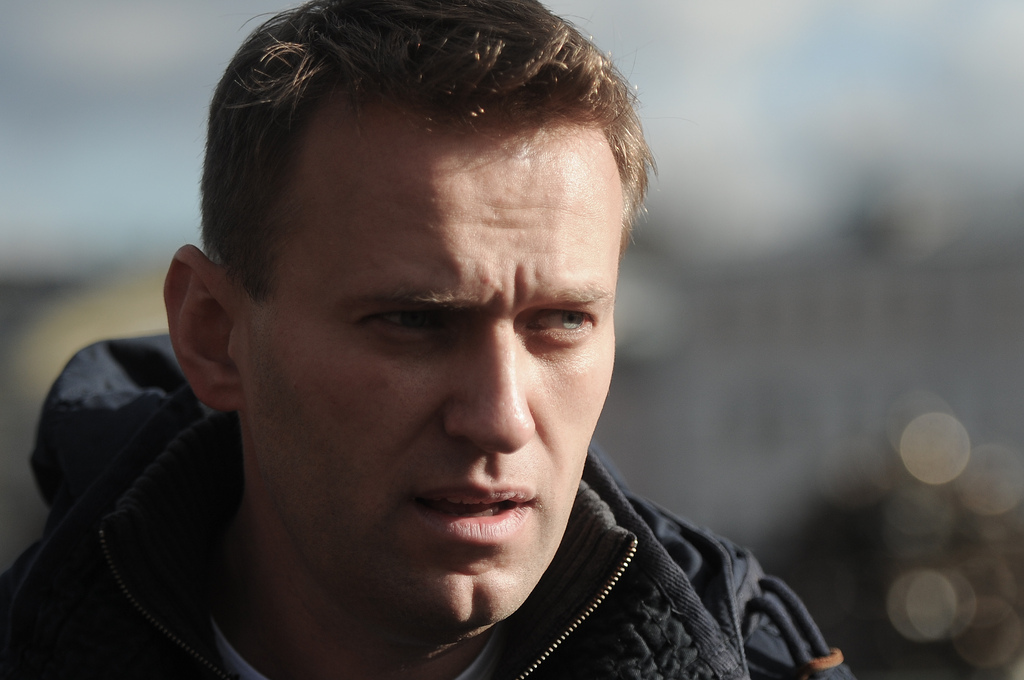Today, on the 18th of July, Alexei Navalny – a lawyer, dissentient, entrepreneur, blogger and social activist – was sentenced to five years for alleged scheming with a firm from Kirov Oblast.
For the ones who do not know who Alexei Navalny is, there is a short story of the Moscow activist from the liberal opposition.
In 2006, I saw him live for the first time – at that time he organised “Da Debaty”, the most open and influential discussion panel in the country. When the television was completely controlled, weekly debates let activists from different streams – from ultra-orthodox to nationalistic and communist ones – air their views on the subjects which have been taboo in Russian political discourse for a long time. At that time, I felt that there was still a “gate” for a real debate.
Later on, he worked in Kirov for Nikita Belykh, former president of the democratic-liberal Union of Right Forces. He has known Nikita since he worked in Moscow. Belykh wanted to reform Kirov Oblast (a remote region by the Vyatka River where Old Believers and rebels were displaced in tsarist times), that is why he invited the most effective and modern entrepreneurs.
Belykh was willing to cooperate and wanted to show that reforms can be carried out even in the most undeveloped regions. When Navalny (already in a different time of his life) started to be dangerous for Putin’s authoritarian power, the Investigative Committee began to search for anything that could be interpreted as a scandal or could be enough to sentence Navalny. Russian law (to be more precise I should write “law”) unfortunately allows such situations – “any article can be found to sentence anybody”. And this is how it happened; just like in the case against Navalny’s brother and parents.
Why is the Investigative Committee (and maybe Putin himself) so afraid of Navalny? There are some reasons.
Because he fights with corruption.
In 2010 he established a foundation which could find and expose large-scale scams thanks to the system of electronic evidence of tenders and using other possibilities.
Because he is a good organiser.
When he was establishing the foundation against corruption, he raised PLN 700 thousand and even now it is the biggest crowdfunding campaign (raising money via the Internet) in the history of Russia. After elections in 2011, he was one of the organisers of vivid mass demonstrations against electoral frauds. In 2012, he established the Coordination Council of oppositional movement – the most effective initiative of the unification of a very diversified Russian opposition – the organisation which was highly criticised but united nearly all political parties. At the beginning of 2000, when pseudo-independent parties still existed, nobody could do that. What is more, the Coordination Council was chosen by nearly 100 thousand voters! It is not much in the scale of the whole country but in comparison to all oppositional initiatives it was an absolutely new level of discussion, taking into account the fact that Putin and his post-KGB aristocracy destroyed any means of oppositional activity and public thinking.
Because he is gaining popularity.
I remember opinion polls which showed that Navalny is known by 6% of the society. I guess it was at the beginning of 2010. One year later, he may have been known by more people but his slogan “One Russia – the party of louts and thieves” was known nearly by one-third of the society.
He organises, fights with corruption, unites, he is popular. So he fulfils all requirements to become public enemy No. 1 of the authoritarian power.
What can Poland and the European Union do in reaction to Navalny’s sentence?
- First of all, they should just stop using the word “democracy” together with the word “Russia” (if anyone has done it since Khodorkovsky’s trial).
- They should admit that Navalny is a political prisoner and demand his liberation. If there were any legal catches in the trial of Khodorkovsky, whom I also regard as a political prisoner, to justify it, then Navalny’s trial is something completely different. Countries which value freedom and democracy should regard his liberation as one of the key issues in the negotiations with Moscow. Let alone nearly 30 “ordinary” citizens of “the 6th of May” (imprisoned after protests in 2012) who are barely talked about in Poland.
- They should support the opposition and oppositional programmes, admitting that the present government in Russia obeys neither the rule of law nor human rights.
- Predicting the next political cases, they should simplify the processes connected with granting political asylum for Russian activists. Russia is now in the same group of states as Belarus.
Translation: Anita Stradomska.



